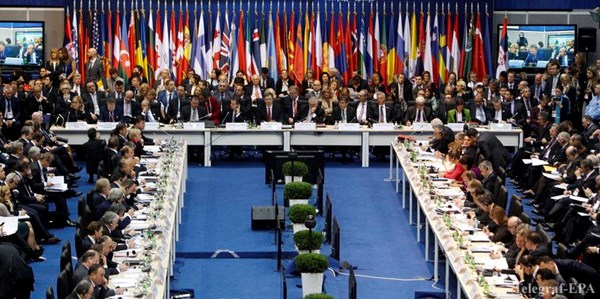PACE delegation to visit Moscow after Russian elections
A delegation from the presidential committee of the Parliamentary Assembly of the Council of Europe (PACE) is ready to visit Moscow after Russia’s presidential elections on March 18, Dutch Senator Tiny Kox, a member of the committee, told RBC news agency.
“I suppose that we will not be able to go before the presidential elections, because we do not want to interfere in the electoral process,” Kox noted.
As part of the winter session of the PACE which took place between January 22 and 26 an inaugural session was held for the special commission on the harmonization of the organs of the Council of Europe. Since 2016, Russia has not been fully involved in the PACE’s operation, but this session was attended by Deputy State Duma Spokesperson Pyotr Tolstoy and Konstantin Kosachev, chairperson of the Federation Council Foreign Affairs Committee.
After the session, the Russian delegates invited the new PACE president Michele Nicoletti and the members of the presidential committee to come to Moscow to discuss Russia’s relationship with the assembly. Kox told RBC that the invitation was an unofficial one, and that Strassburg is now eagerly awaiting an official offer.
The Russian delegation to the PACE was deprived of the right to vote in April 2014, shortly after the start of the Ukrainian conflict. Despite Moscow’s protests and attempts to have this ruling revised, the sanctions against parliamentarians from Russia remained in force, and were even intensified: Russians were banned from taking part in the operation of the supervisory organs of the PACE.
In response, since 2016 Moscow has regularly refused to acknowledge its privileges in the PACE, and has not sent its delegation to Strassburg. In the summer of 2017, due to the prolonged lack of participation by Russia in the PACE’s operation, Moscow refused to make its contribution to the Council of Europe’s budget, an amount of roughly $30 million per year.
The special commission on harmonization, the first session with Russian attendance for a long time, was organized according to the October PACE resolution which called for uniformity in the participation of Council of Europe member states in its primary organs. Essentially, the possibility of Russia’s return to the PACE was proposed, on certain conditions which are subject to discussion.
One of the initiators of the creation of the harmonization work group was the new PACE president Michele Nicoletti, who was instated on Monday, January 22. After the first session of the commission on Tuesday, Tolstoy and Kosachev noted the constructive character of the discussion, and expressed willingness to work further with PACE colleagues to “overcome the crisis” in the assembly.
According to Senator Kox, the next meeting of the special commission is scheduled to take place on March 16 in Paris. However, by February 16, the committee members, including the PACE leadership and representatives of all 47 countries of the Council of Europe, including Russia, are called on to submit their reform suggestions. Kox himself says that he has been instructed to prepare a report “on the role and identity of the PACE” for the assembly’s political committee.
